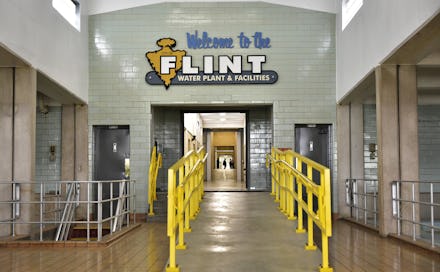Op-ed: What really matters in the 2020 Democratic race

Wednesday night’s Democratic debate included a number of great moments for candidates that needed a boost. New Jersey Sen. Cory Booker’s discussion of the impact of gentrification on affordable housing and Minnesota Sen. Amy Klobuchar’s electability pitch were among the best.
But there’s one that stuck out to me in particular. It was California Sen. Kamala Harris’s discussion of African American voters and Black women in particular. Harris amplified a common frustration: Black Americans are more than votes to be counted, they are people with unique circumstances that deserve understanding of those circumstances.
Harris said, “There are plenty of people who applauded Black women for the success of the 2018 election, applauded Black women for the election of a senator from Alabama. But, you know, at some point, folks get tired of just saying, ‘Oh, thank me for showing up,’ and say, ‘Well, show up for me.’” She continued, critically: “When Black women are three to four times more likely to die in connection with childbirth in America, when the sons of Black women will die because of gun violence more than any other cause of death, when Black women make 61 cents on the dollar as compared to all women, who tragically make 80 cents on the dollar, the question has to be: ‘Where have you been and what are you going to do? And do you understand what the people want?’”
No one doubts the double standard that exists in American society for women and open discussion of important issues like the pay gap and women’s reproductive health are very welcome. That said, new data in two key areas — climate and racial inequality — adds even more depth to Harris’s argument.
The BDG Trends Group recently conducted a survey among 2,000 young women in the United States ages 14-22 and found that two of the top five most important issues to young women of color are preserving our planet (#2) and racial justice (#5).
When asked why, responses varied from “because we only have one planet” to “because ‘racism’ shouldn’t be a word or a thing anymore, but unfortunately, it is.” The data also showed that 61% said “race” was the top issue that affects their right to equal treatment under the law.
So how do climate and race intersect? Quite seamlessly. A new study about closing the water access gap from the U.S. Water Alliance and DIG DEEP, a human rights non-profit working to ensure that every American has clean running water forever, found that more than 2 million Americans still lack access to running water and basic plumbing. Of those 2 million, Native Americans are 19 times more likely than Caucasians to live without these basic services. Black and Latinx households are twice as likely.
The Flint water crisis was chic for politicians to talk about, but discussing how the inequalities in climate weigh heavily on people of color? Not so much.
The Water Access Gap study found that “race is the strongest predictor of water and sanitation access.” In fact, the percentage of households with the lack of complete plumbing when split by race clearly illustrates this: Just 0.3% of white households lack complete plumbing, compared to 0.5% of African American and Latinx households, and 5.8% of Native American households.
The findings also show a direct correlation between complete plumbing access with household income, educational attainment (which has been shown to correlate to poverty), and unemployment rates. Climate change isn’t targeting communities of color, but it is affecting them on a more significant level.
As we’re thinking about who to select as the Democratic candidate for 2020, we should also consider who truly understands the challenges facing all Americans.